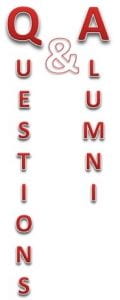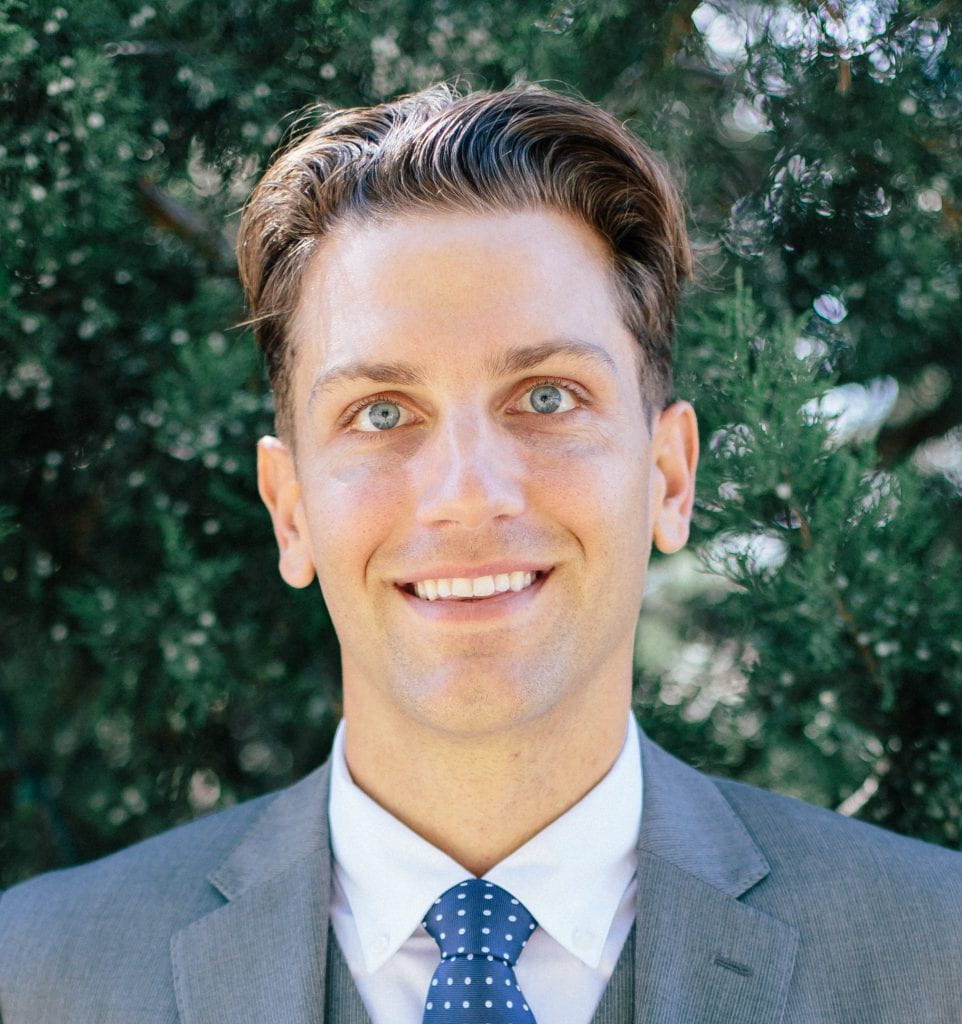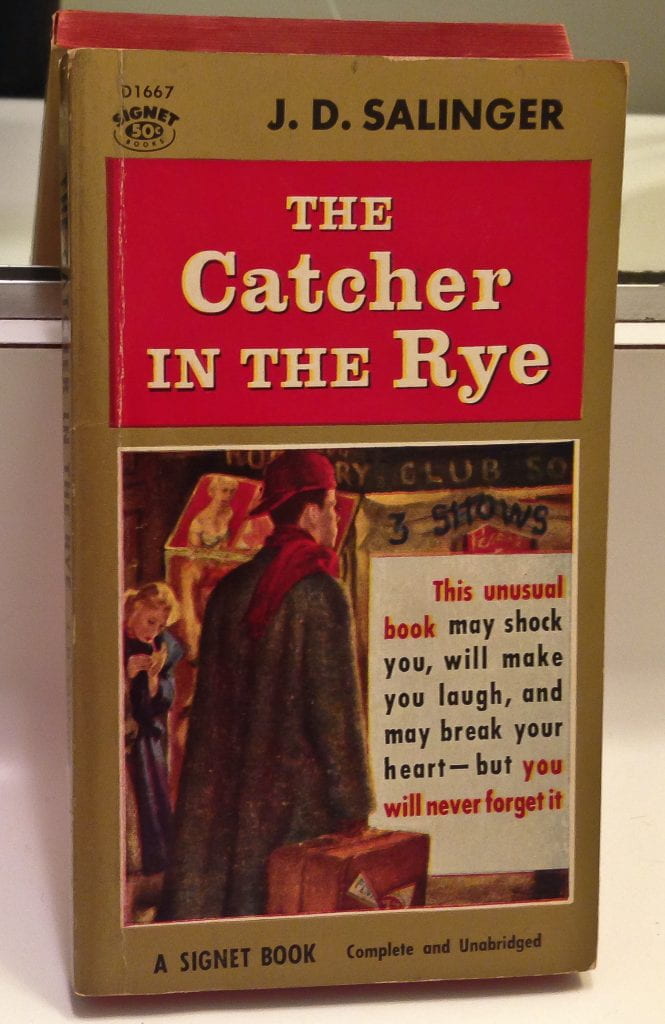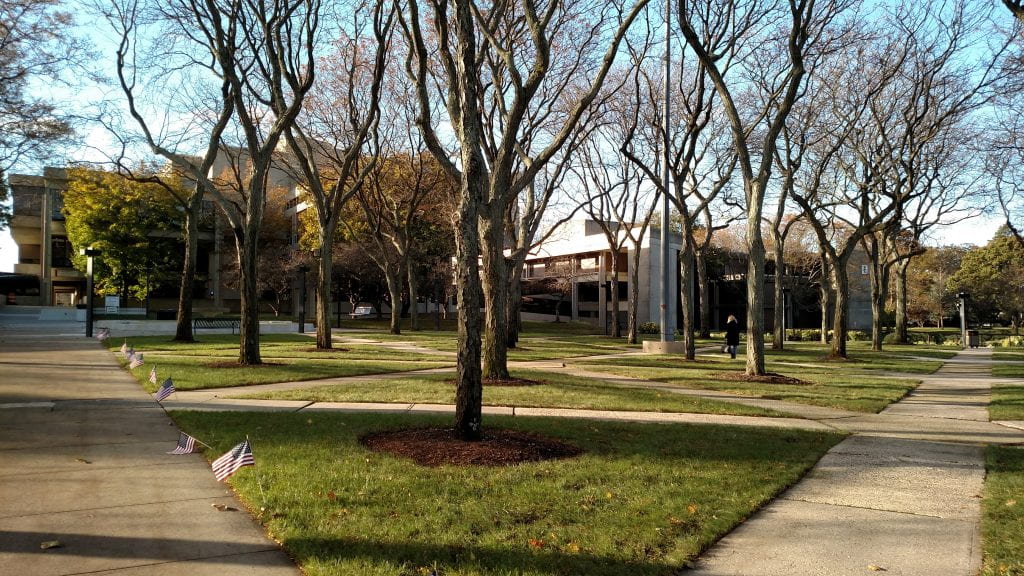This content is not currently available.
This summer I had the real pleasure of working as a Research Assistant on Dr. Newman’s project, The High School Canon: A Readers’ History (seriously, if you want to peek into a well-organized, multi-faceted project speaking to multiple audiences, work with Dr. Newman). As we were focusing on how high school students, alumni, and teachers remember, think about, and navigate the high school English classroom, Dr. Newman grew curious about how the alumni of our own department think about their high school English experiences: not just what did they read, but how did they read? Did the reading they did in high school shape the reading they did in grad school? And what are our alumni up to these days anyway? To begin answering these questions, I turned to semi-recent alum, friend, and role-model Scott Zukowski who gave me a guided tour through his progression from rebellious high schooler to aspiring humanist.

Scott Zukowski
CS: It’s 2020 so I have to ask, how have you been holding up this year?
SZ: Is this an official question!? I’ve been holding up decently. Having a baby on the way keeps some element of positivity in my consciousness, and I’ve really been enjoying making the most out of every spare hour outside of work—being outdoors as much as possible, running, taking walks, swimming, etc. And not having to commute 3 hours a day on trains is great…I feel way less stressed just to have no commute.
Scott Zukowski: The High School Years
CS: So, as you know, this interview is motivated by my work with Dr. Newman on his High School Canon project. Let’s start with some questions about high school Scott, who I suspect was a bit mischievous [SZ: Who told you!?]. What high school did you go to and what kind of student were you? What did you think of literature and English class back then?
SZ: I went to Wantagh High School in Wantagh, NY. I think the simplest way to classify me as a student is to say that I was usually lazy when it came to homework and assignments—frequently not turning in assignments—and I was disruptive in class, often rebellious against teachers. This was all the case pretty extensively through 9th and 10th grade. Eleventh grade was a pivotal year: I settled down a lot, became a better student (I’d gotten through the prerequisite type classes and now was taking electives or had open periods), and realized more concretely that I liked reading and writing. A significant factor in this realization was my teacher, Mrs. Skolnik, who was great at stimulating interesting conversation about the books we were reading. She also made us keep a journal that could be about anything we wanted and mine was sort of a creative non-fiction journal of high school parties and fights and lust and gossip. The fact that we were allowed to write whatever we wanted was important—it was fun to write creatively about things that were genuinely exciting to a 16-year-old. In Skolnik’s 11th grade class, I remember actually reading and thoroughly enjoying Gatsby, Hamlet, and The Catcher in the Rye.
The second big factor in my change as a student and as a reader might seem unusual: about 2 weeks before 11th grade started, I was jumped, and for a few weeks afterward, I stayed home more often at night (I remember being nauseously afraid to go out and be seen by the same group). So while I was home I started reading The Canterbury Tales, which had been on my parent’s bookshelf my entire life, and the Bible, which I was really interested in not as a believer but as somebody who thought of it as holding all these secret codes (literally like something out of the DaVinci Code or National Treasure). Persistently reading both of those long and often boring or unintelligible books made reading anything else much more exciting…it kind of built up a resistance to “boring book fatigue.”

Taking a nap or building a life-long love of books? (Photo courtesy of clemsonunivlibrary via Flickr)
Twelfth grade was also a key year for me in terms of coming back to reading on my own outside of school: I wasn’t allowed to take another class of wood shop, so I was forced to take a study hall in the library. I would nap behind this certain bookshelf every day, and, as I’d lie there, I’d read the titles of the books on the shelf—one was JFK’s Profiles in Courage. It sparked my interest, so I read that, then tried other books I’d see in the library—Robinson Crusoe, Kipling’s Kim, etc. I think one part of my interest in literature was gaining cultural knowledge as a form of cultural capital…and maybe also experiencing a feeling of being connected to some mystical cultural object. I think I romanticized famous works of literature and also saw them—like the Bible—as holding keys to some secret, hidden truths that maybe I could uncover. I remember spending the entire spring and summer reading…and that was the beginning of me really reading on my own for pleasure, cultural capital, and self-discovery as an adult.
CS: Are there any texts or teachers that have stuck with you from high school? Any memorable English classroom experiences you’d like to share?

Hating is a way of remembering, right? (Photo courtesy of Chris Goldberg via Flickr)
SZ: I guess I somewhat answered this already, but Mrs. Skolnik’s class was most instrumental for me. Not only did she find a way to encouragingly channel my sometimes spiraling energy into enthusiasm for class texts/assignments/conversation, but her required journal writing was also big for me because I got to write creatively about my own experiences as a high schooler—at night, with friends, with girls. I also remember that my friends loved to read that journal and to be mentioned in it. Sometimes on rainy days we’d sort of collaborate—they’d verbally suggest topics or phrasing and I’d craft it all into a written text. I also identified a lot with Holden Caulfield (whom I now hate), and, reflecting now from over 15 years’ distance, I think that I was figuring myself out through figures like Holden and Hamlet and Nick Carraway.
Scott Reborn: Metamorphosis in the Community College
CS: Shifting gears a bit, one of the many things (all of them good) that sets you apart from the other people I’ve met in the English Department is that you studied at a community college. You earned an associate’s degree from Nassau Community College, and you continue to be an active member of the alumni association. How did your time at NCC shape your academic trajectory? How did it influence your relationship to literature?
SZ: Look at you, doing your homework. Well, I went into Nassau as a history major hoping to become a high school history teacher, but within a few weeks I realized that I’d rather read and teach novels for living—it seemed more enjoyable. It was also at NCC that I shifted from wanting to be a HS teacher to wanting to be a college professor.
Nassau was a big boost to my confidence in writing and reading. I kind of think of it as whatever stage it is in the hero’s journey when he/she isolates and trains and discovers him/herself etc. My friends were all away at college; I was home in isolation, taking 19 credits/semester in English courses, reading about 2 novels at a time for school, one for myself. I took Latin, which really stimulated my interest in language structures and etymology, as did a course in English grammar. Being among the stronger students in my community college classes considerably increased my academic and intellectual confidence, which I think in turn made me an even better student…it kind of gave me permission to experiment with different analyses, writing styles, and discussion points. The classes I took at NCC—Holocaust Lit, Masterworks of British Lit, Film & Lit, grammar, Latin, philosophy, and “The Making of the Modern Mind”—exposed me to the great works that I was eager to become familiar with, and they also broadened my literary horizons to other areas. It was all these courses, combined with genuinely good faculty, that made me not just love literature for its entertainment value but for its perspective-altering potential. This might again connect to the desire to tap into deeper truths through literature. My experience at NCC expanded beyond that, though: it wasn’t just about cultural capital or (suspected) hidden truths; it was about civic responsibility and philosophical questions of being. In fact, I entered NCC a staunchly conservative Christian capitalist war-hawk and left there a liberal atheist Marxist pacifist.
Finally, from a more logistical standpoint, I had strong grades at NCC and won a lot of awards there, which was instrumental in my admission to a top-50 research university that would set me up for a good graduate program.
CS: What are some of the biggest misconceptions you think most academics have about community colleges?
SZ: I think many academics see two years in community college as two lost years, as two years when any serious student or worthwhile job candidate would have been doing “real,” “challenging,” and “worthwhile” work at a four-year institution. That’s simply not the case, especially if you’re considering somebody who continued to demonstrate educational achievement afterward. It’s true that there was a significant hard-skill gap that I had to bridge between community college and my four-year research institution, but those hard skills are easy enough to learn. Nassau gave me a toolkit of less-tangible skills and ways of being that helped me succeed at Tulane: work ethic, critical thinking and problem-solving skills, confidence in myself, etc.
A Different Return: Charting a Path through Academia and Beyond
CS: One thing I’ve always really admired about your research is the way you embrace the rootedness of place. Your work is very regional, but you find so much in what would appear to be small places. Can you say a little about how you approach your research and what priorities guide your work?
SZ: I’ve always been interested in how identities are rooted in place—town and street names, historical road routes (following, say, Native American footpaths or animal paths), maps, geography, agriculture, etc. This blossomed into much more during my Ph.D., when I worked in local archives…both because I was genuinely interested in the materials there and because those archives presented (hopeful) opportunities to find something “new” and exciting that other scholars hadn’t touched before. Local archives also help us get away from the voices that have dominated the canon. I’ve tried to incorporate local or at least regional texts into my teaching in the hope that students will be, like me, more enthusiastic about and invested in something that is local. This has also been a key part of my work as an experiential learning teacher and advocate. Bringing students one semester to the Long Island Museum was a hugely successful way of challenging students who themselves were from Suffolk County to suddenly think about how “national” authors, poets, painters, and thinkers could relate to their own local histories and cultures. I recently published an article in Walt Whitman Quarterly Review that was all about the history of NYC’s Trinity Churchyard in nineteenth-century NY culture. It was so exciting to be able to approach the project from the abstract world of theoretical research, the archive of c19 newspaper literature about the historical location, and the present, tangible location itself.
CS: You’re currently a Mellon/ACLS Public Fellow at the Library of America. What drew you to that opportunity, and what has it been like? Do you see your work at LoA as a continuation of your work from graduate school or does it mark a shift in your work?
SZ: My decision to accept the Mellon/ACLS Public Fellowship was influenced by a few factors: genuine interest in bringing my work beyond the confines of academia; a general openness to different career paths; and also, an awareness of the fellowship’s reputation for providing quality experiences. To me, whether I ended up deciding to pursue an academic career or something semi- or non-academic, this fellowship would be good training and a good credential for the next step.
In some ways, the experience has been significantly different from my academic one—I’ve often longed for work that required those long, isolated periods of concentrated study like I would do for a chapter or an article. Instead I have frequent meetings, quick project turnarounds, increased levels of independent decision-making that affect an entire team’s work (not just one’s own), and I’ve had to adapt to office dynamics that are pretty different from academic ones. That said, some of it has been an amazing continuation of my academic/educational experience: I’ve been able to work on long and short term projects about American literature, history, and culture; I’ve done considerable research on new areas of American literature and history that I had little previous experience in; I’ve put my writing and editing skills to good use; and I’ve used teaching skills like PowerPoint, public speaking, and “feedback-giving” regularly. I’ve also been very inspired by a lot of the research I’ve done—particularly by activist-writers and journalist-writers of the twentieth century. That’s created a shift and has helped me to rethink who I want to be, the impact I want my work to have, the readership I want to engage, the skills I want to develop, the legacy I want to leave, etc. The general answer to all of those questions is that I want my work to inspire positive change and to engage the public at large (although I still value academic publishing as much as ever). So I’m now working on building up my portfolio as a public scholar and/or humanist.
CS: Finally, what’s next for you? What direction do you envision your work heading in?
SZ: I’m staying on the academic job market, but also considering jobs in non-profits, government, consulting, and, once again, secondary education. One way or another, I think I’ll continue with my research and writing, even if it’s aimed at a different audience than originally intended. I’ve also realized that it’s hard for an academic to suddenly “stop learning.” I’m currently entering my fourth term of German classes, I’m taking a certification course in educational interpretation at parks and museums, and I’ve just enrolled in a Photoshop course that can help add visual flavor to my online writing portfolio.



Amazing journey into the academic world of the research assistant within the world of high school and new knowledge. I have used to complete the internship on the similar position, and the last stage was writing a review, so I have accessed this link https://uk.edubirdie.com/article-review where I got the full support with writing an article review. I think this experience was determining in my choice of career.
Instant Assignment Help provides the best online nursing dissertation help the students for transforming their dream of getting top grades into reality. The in-house team of highly experienced and qualified academic writers aims to deliver a well-researched and creatively written assignment at budget-friendly prices before the deadline.
Avail Assignment Help is the best academic writing service provider for Aussie students. The Australian experts assist students with the utmost assignment help solutions in achieving their targets. The assignment writers are skilled enough and have knowledge regarding every subject. Apart from assignments, they also provide Homework Writing Services to the students who ask for assistance in their academic careers.
Enjoy drifting &drivingawesome cars. Explore beautiful maps, find your favouritedriftlocations. Do experiments with car tuning. And join the Drift Hunters community.
Amazing article! love it1
Myself Daniel smith my profession is writing and searching new products, I completed my Ph.D. in English literature from the University of Florida in 2016. I join americans outfits as a junior writer but now leading a professional team of writers.
It’s quite heartwarming to see when you get to be an assistant of your ideal. I also work under a designer who I always idolized. Although I’m a student still, I make sure to go for my part-time job on time. If necessary I take assignment assistance from https://bestassignmentwriter.co.uk/ but never get late for my job as I love it.
RightJackets is the best place for you to get the most original custom made products and more.We have the biggest range of a variety of products.
Ella Purnell Yellowjackets Varsity Letterman Jacket
RockStar Jackets is incredibly pleased to announce ourselves as the most dependable manufacturers and exporters of a variety of products comprising of Leather Garments. San Francisco Dons Varsity Wool Jacket
We are providing chat for creators, so all creators are able to chat with each others.
NFT art finance
Panther Jackets Is A Leather Jackets WareHouse Providing Jackets In USA, Canada and UK.With Free Shipping Def Jam Recordings Black Bomber Varsity Wool Jacket
Now a days online business are very trending and tremendous all over the due to corovirus. This is very esay way to earn money online but i found in google i saw one article how to write and get paid marketing.
Write and Get Paid
Hard times and hard tasks, the assignments, and the throttling deadliness. We all are aware of such stifling occasions from our university days. What many of us didn’t know is that we may get it done by paying a small fee to an Assignment Helpers . I opted for the service of greatassignementhelper.com and I think that you should try it as well.
Dealofly provides the best and cheap flight tickets in the USA. Visit the website and get the best deals.
When you are in the market for a bride, it is a good idea to meet a ukraine bride online. While there are plenty of these women out there, you should consider the type of woman you are looking for before making any commitments. The most important thing to remember is that you should be ready for marriage before you choose a Ukrainian bride. It is very important that you have the right expectations and a compatible relationship with her.
Looking for fast and professional Online assignment help? Choose GreatAssignmentHelper.com and enjoy high-quality assignment help and low rates!
This is just the information I am finding everywhere. Thanks for your blog, I just subscribe your blog. This is a nice blog..
Dumb And Dumber Suits
AIRBORNE JACKETS care for your fashion requirements. We uphold the premium quality jackets that bring you a new style.
This is a great article and a great read for me. It’s my first visit to your blog, and I have found it so useful and informative, especially this article. devil may cry 5 nero jacket
We discovered that genuine leather jackets are more trendy and exquisite than imitation leather jackets.
online mens biker leather jackets
we offer our customers the most affordable prices in town. Panther Jackets is the place you wanna be. We deal with of all types. We intend to provide our customers with the most premium quality jackets.
Venice jacket
We can offer an experience that rewards and also motivates your team towards greater success! We provide the whole package. First class banqueting by ‘the Alpine Kitchen’ experts, conference and training rooms suitable for small or large teams, with unique access to activities that will deliver your objectives. Team Building Milton Keynes
Jackets are the most popular item in the Yellowstone line. Yellowstone Jackets Shop Unlike the flashy Yellowstone Outfits shown in the bulk of the shows, they are extremely good Yellowstone Outfits.